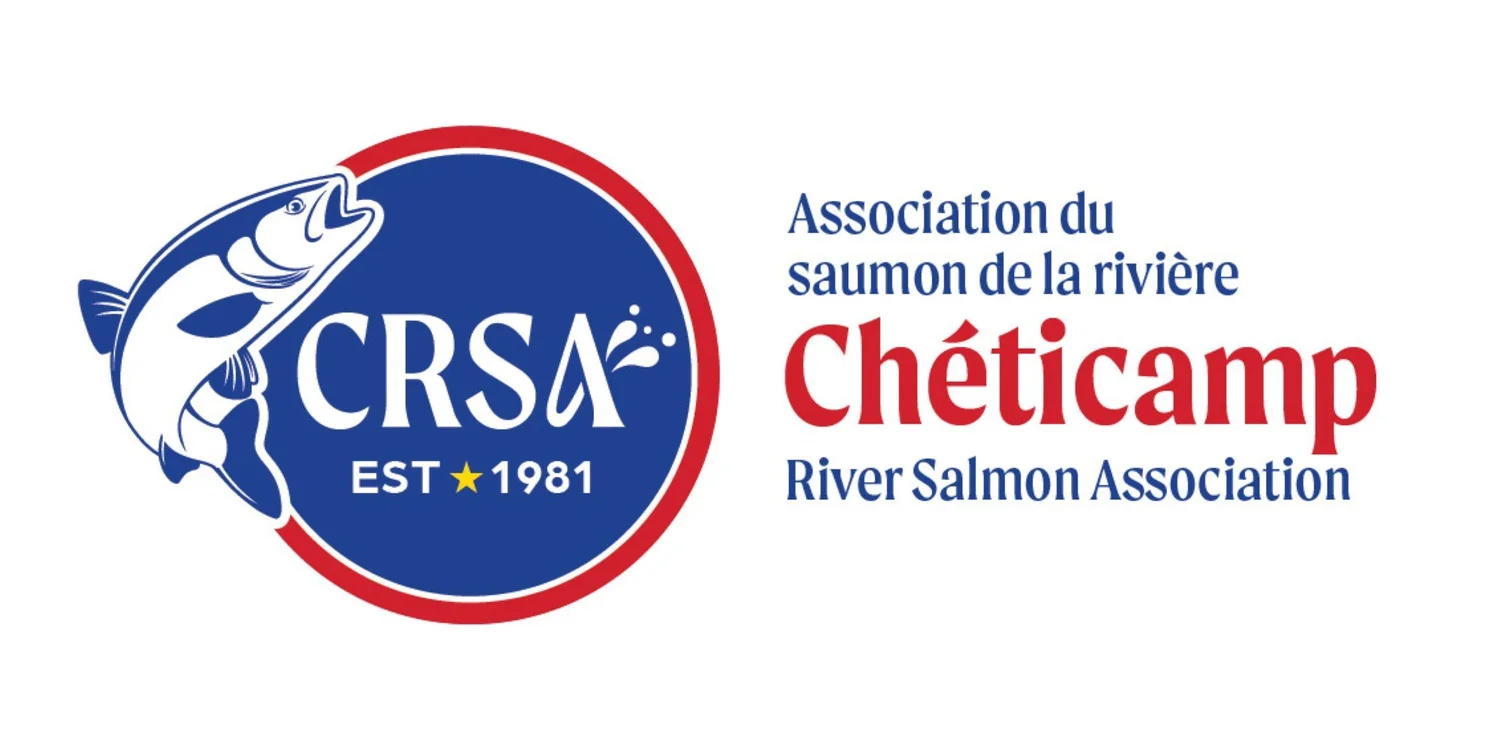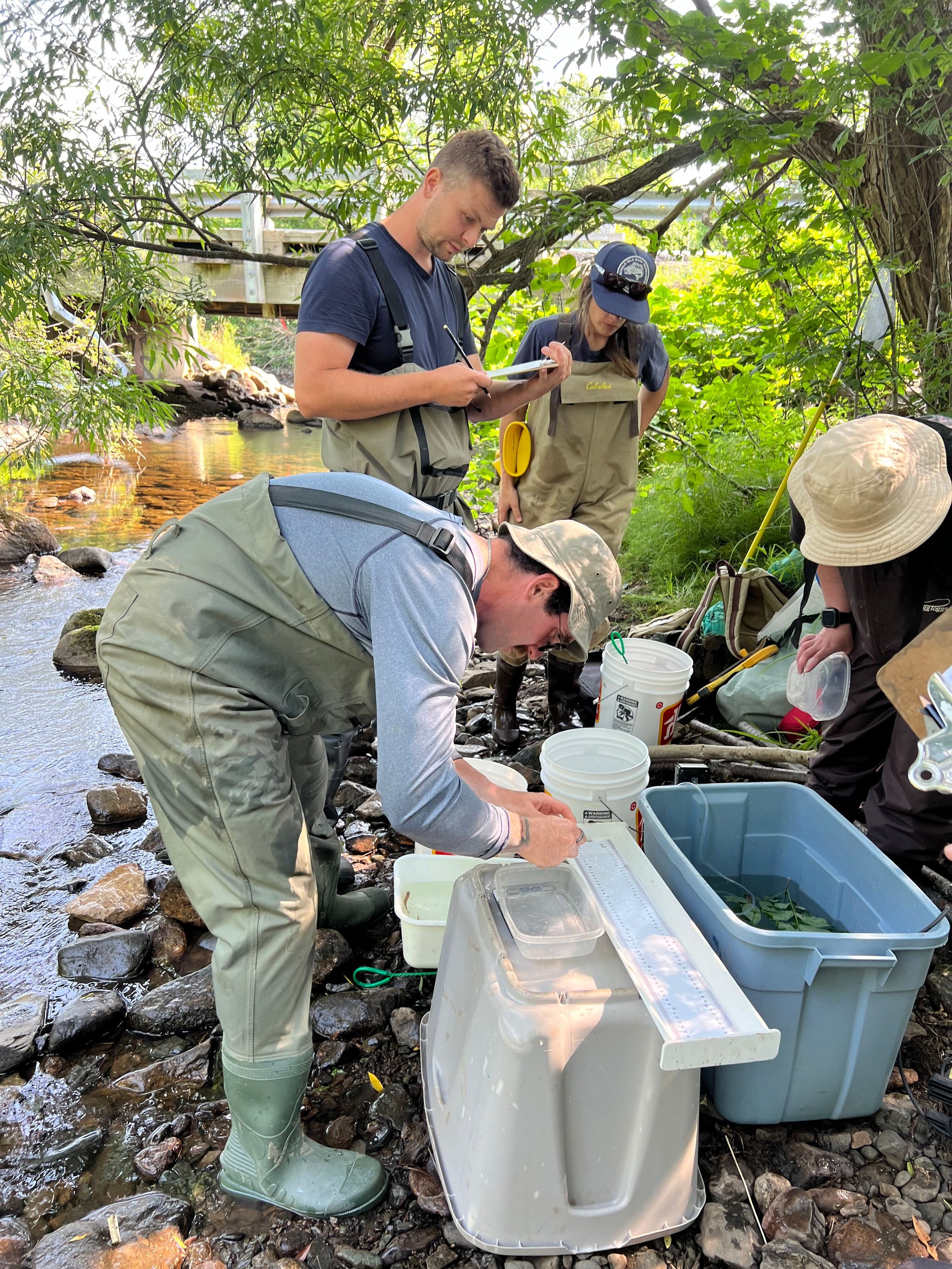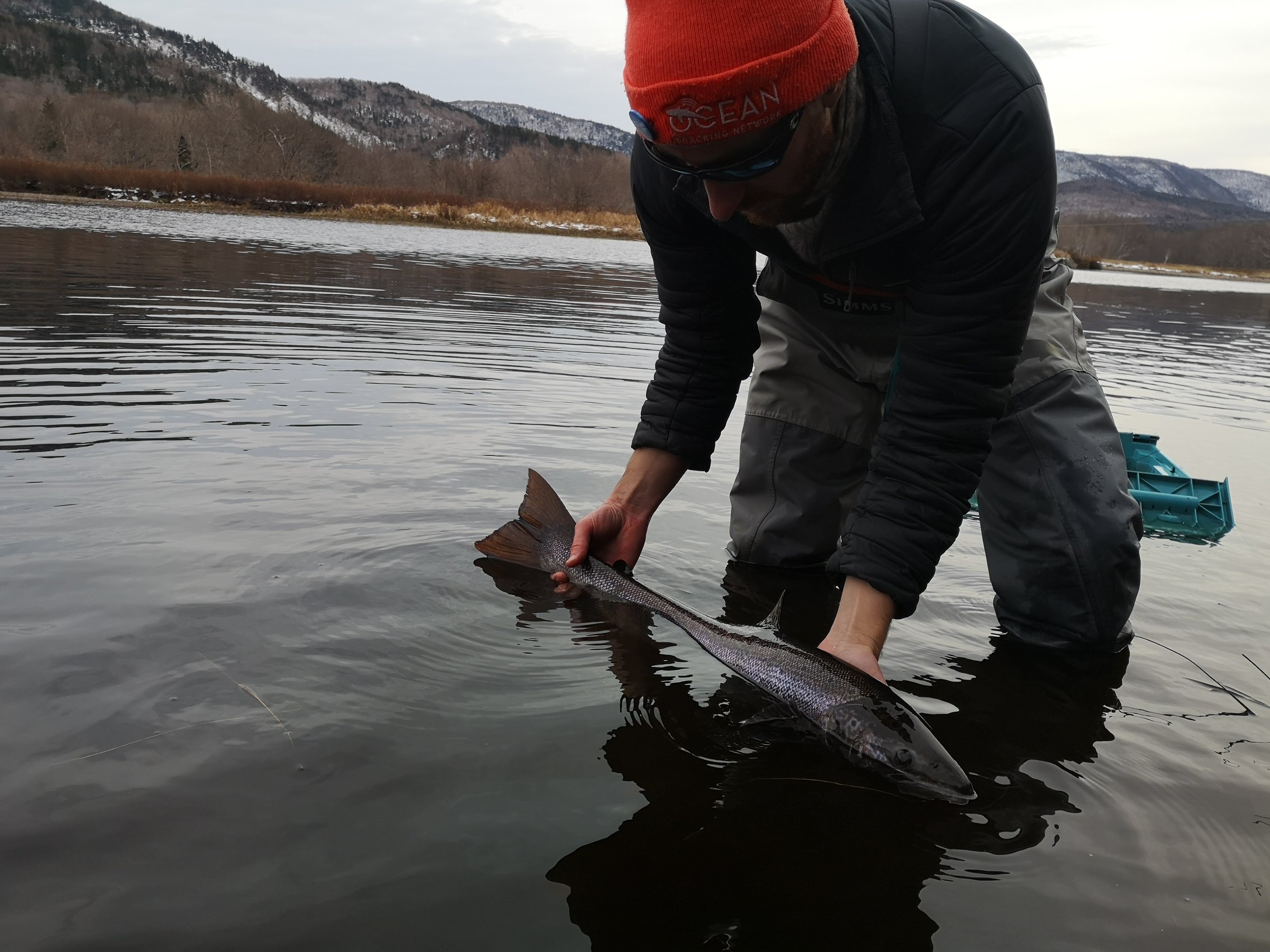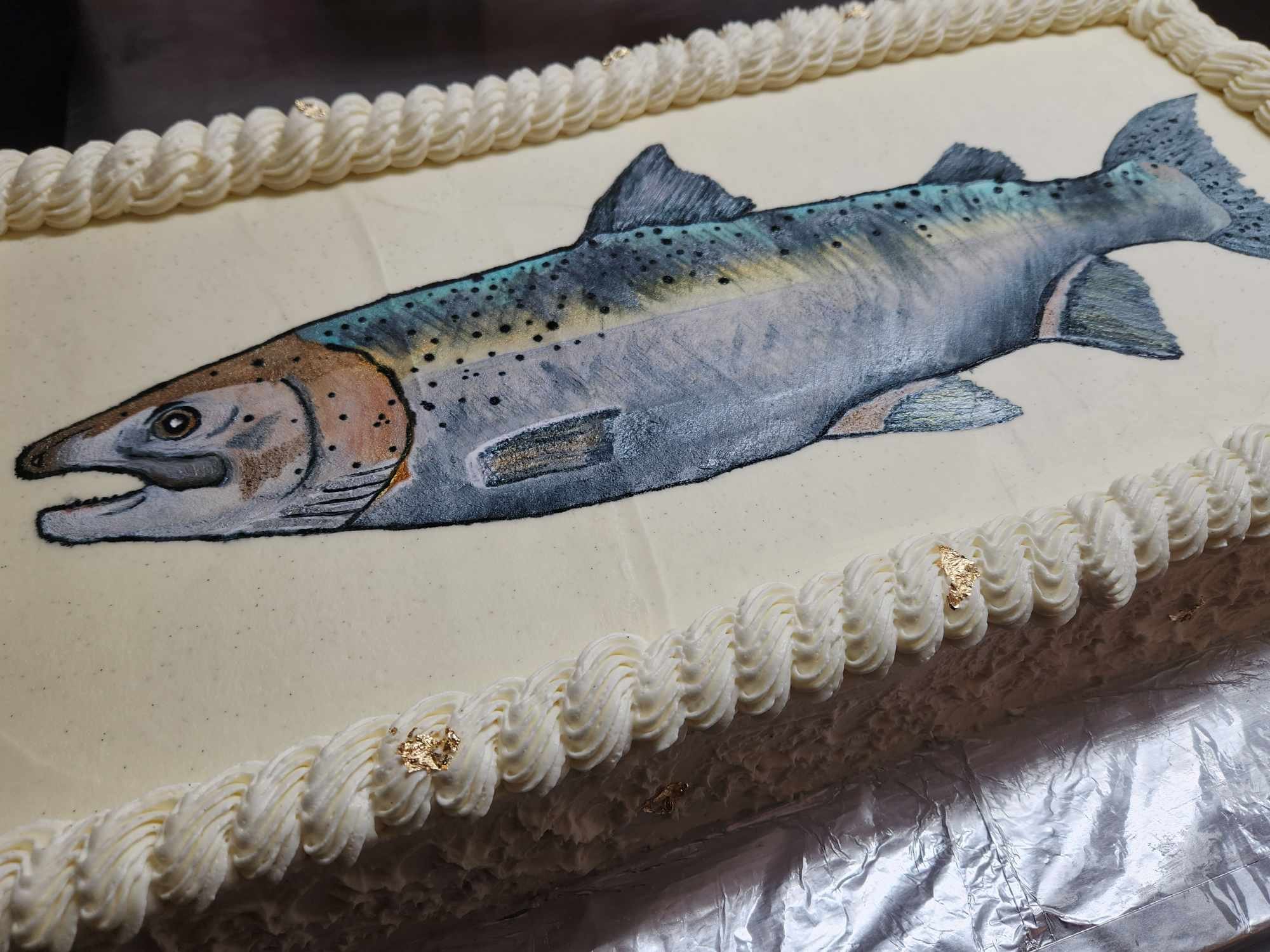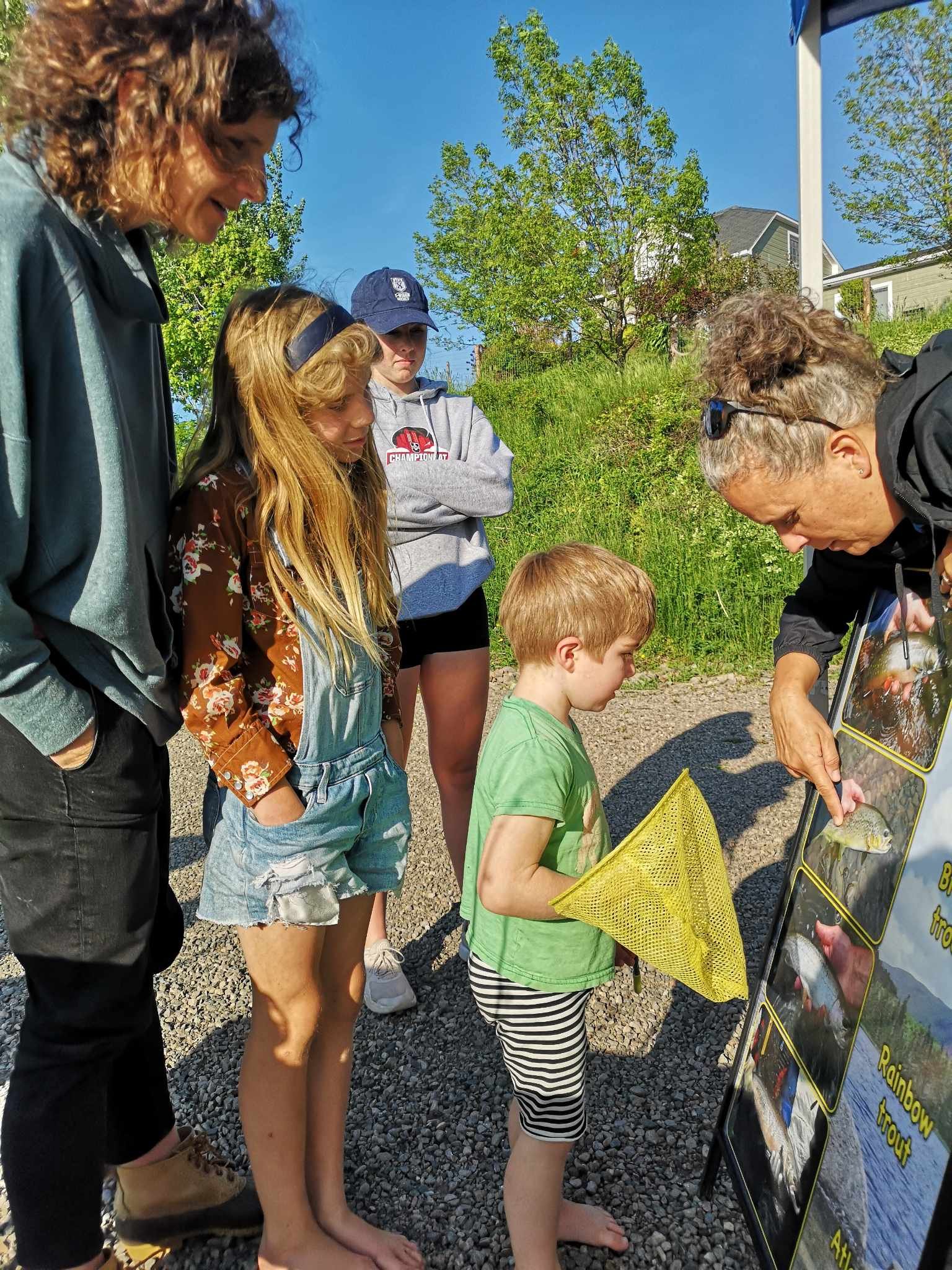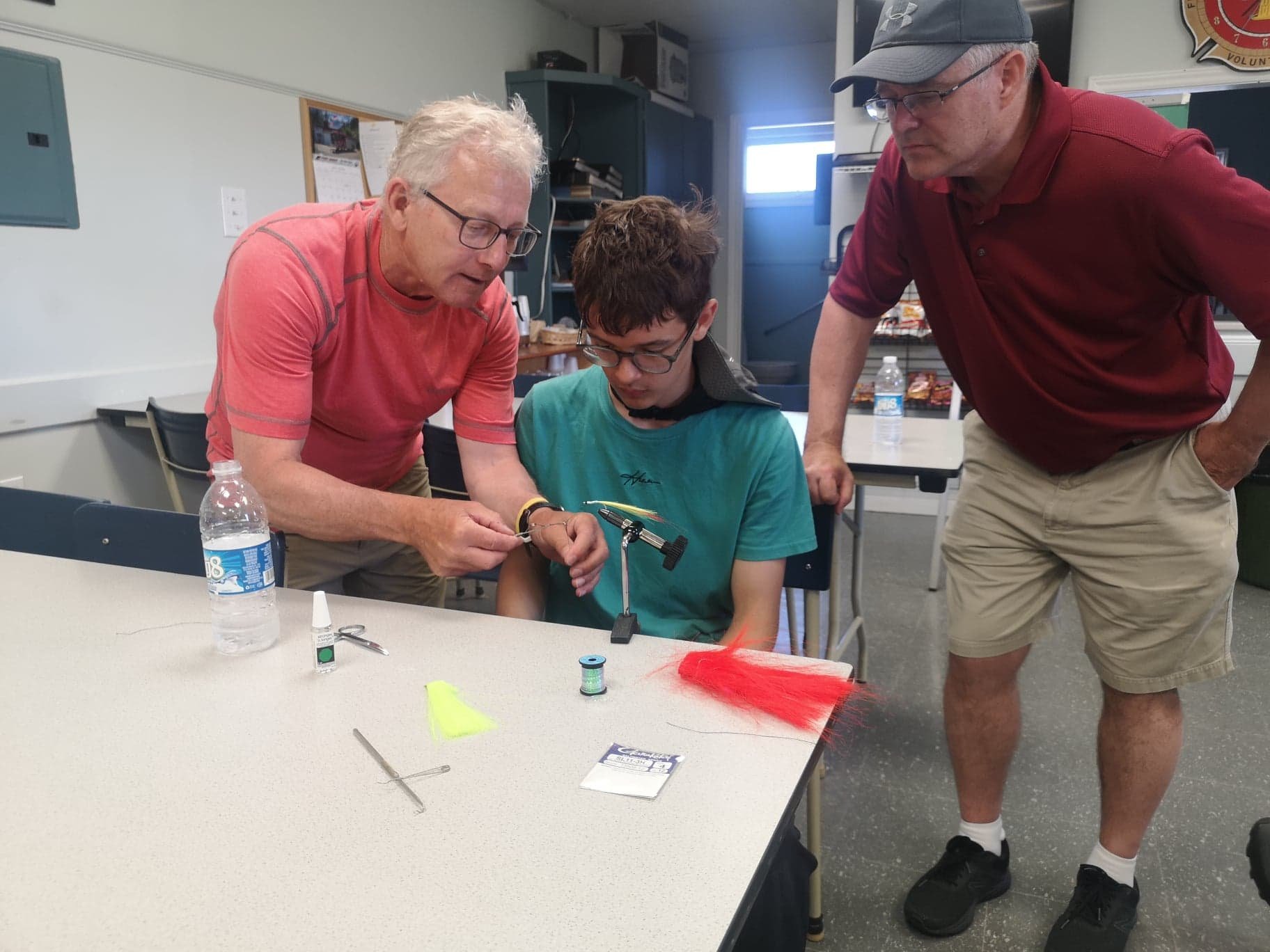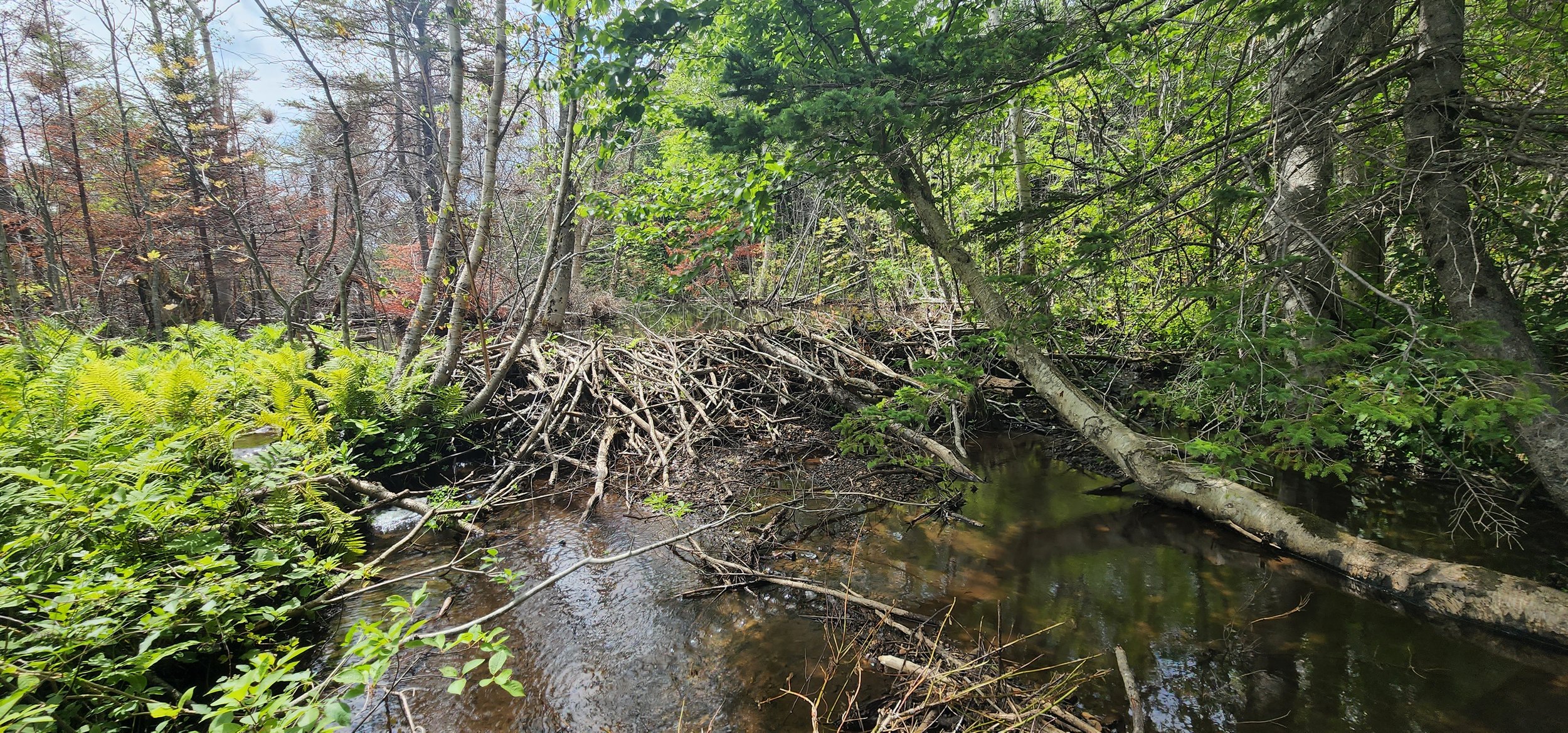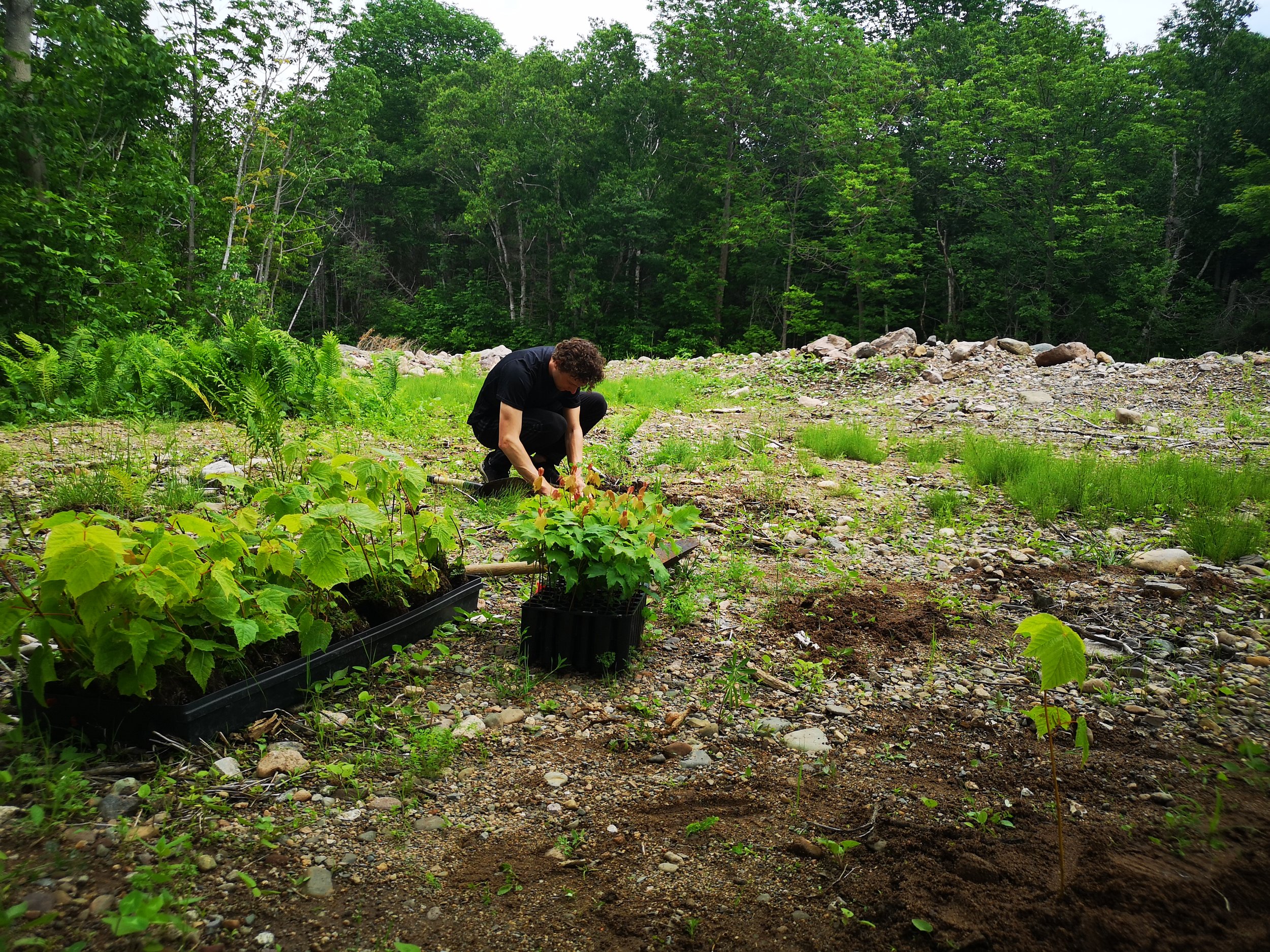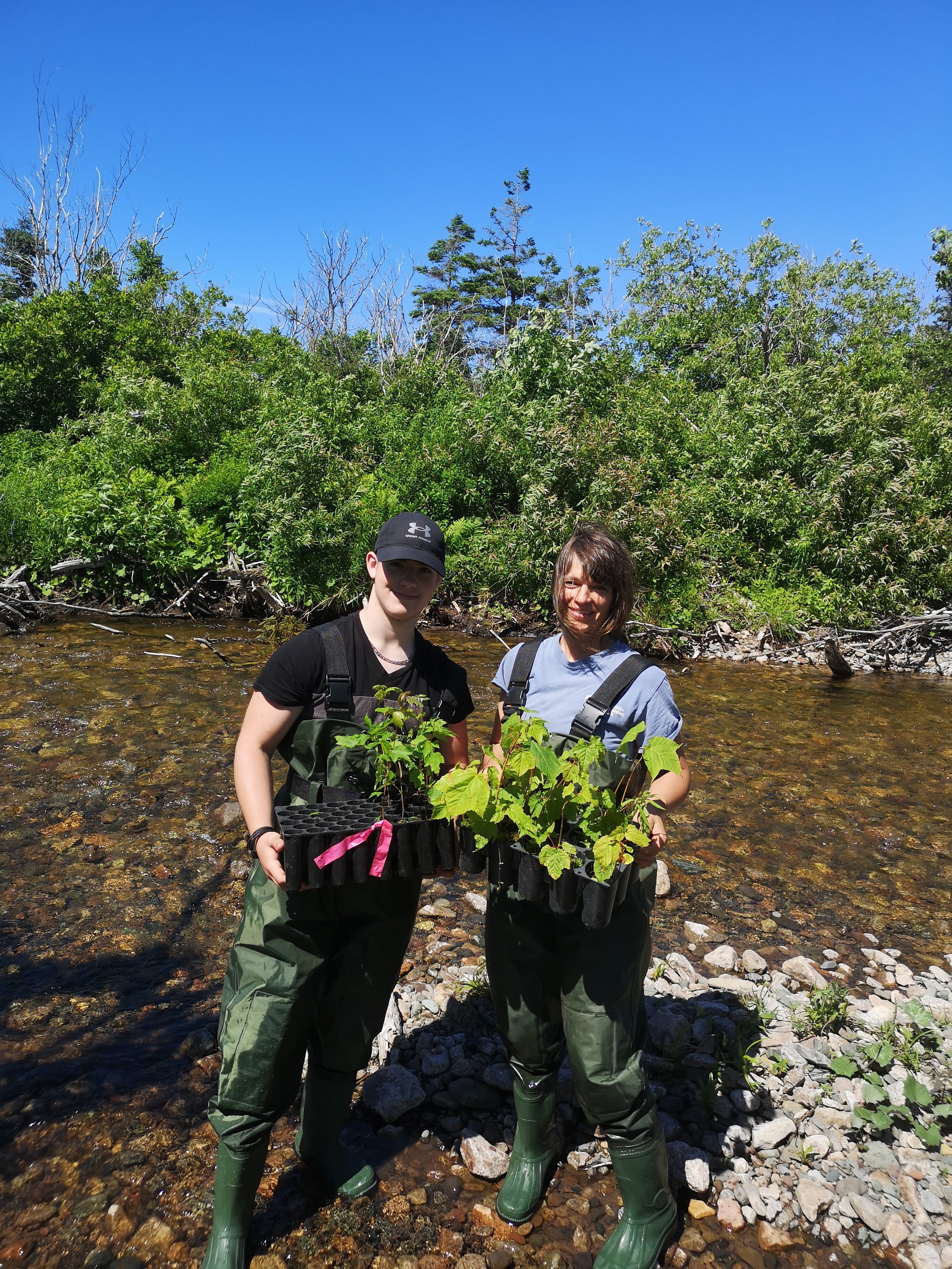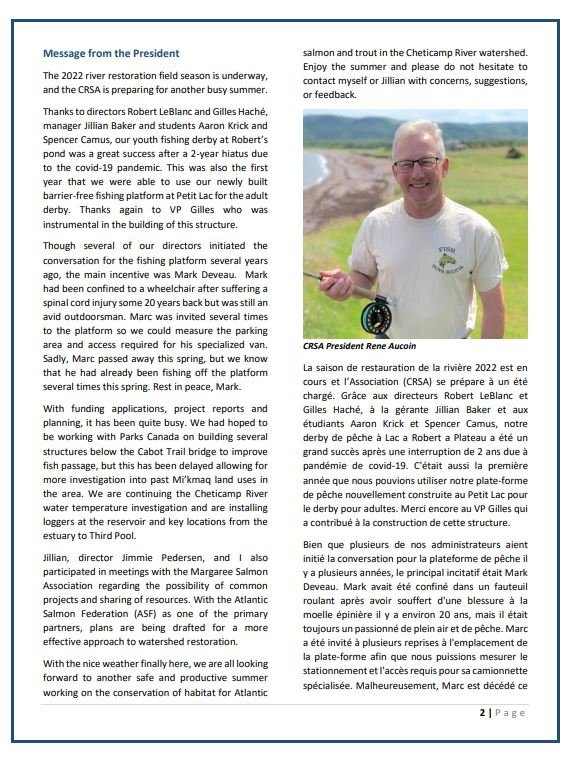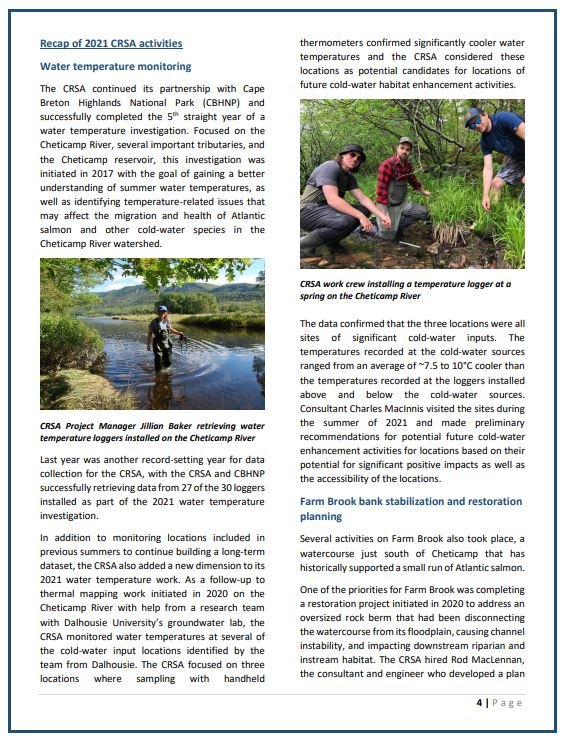Collaboration key to the success of Robert Brook restoration project
The Cheticamp River Salmon Association (CRSA) recently wrapped up a busy field season with a collaborative instream restoration project focused on Robert Brook. Joined by a team of hard-working and enthusiastic partners, the CRSA installed a variety of rock structures designed to improve habitat for Atlantic salmon and brook trout. Working alongside staff from CRSA and Cape Breton Highlands National Park (CBHNP) were members of the Atlantic Salmon Federation, Unama’ki Institute of Natural Resources, the Margaree Salmon Association.
CRSA staff posing with some of the partners who helped install instream structures on Robert Brook, including representatives from the Atlantic Salmon Federation, Margaree Salmon Association, and Unama’ki Institute of Natural Resources.
Robert Brook is a tributary of the Cheticamp River and an important cold-water source containing habitat that helps support the Cheticamp’s populations of Atlantic salmon and brook trout. While the brook is accessible to salmonids as a place to spawn and seek refuge from warmer temperatures on the main river, the CRSA conducted habitat assessments in 2023 that revealed issues with the quality and availability of habitat on Robert Brook. Specifically, the CRSA determined that the channel throughout much of the lower sections of Robert Brook was significantly overwidened and lacking good quality pool and spawning habitat.
According to experts in the field, these habitat issues are the result of human developments, including campground infrastructure (the lower section of Robert Brook flows through CBHNP’s Cheticamp campground) and a dam built as part of CBHNP’s water supply system that was eventually dismantled to restore fish passage.
Restoration work in progress below the Cheticamp campground bridge on Robert Brook, September 2024.
To address these issues, the restoration team developed a plan to restore Robert Brook to more natural conditions. In the end, a total of 11 people from five organizations were involved in the restoration work on Robert Brook. The project that was completed over four days and resulted in 11 new instream structures on the watercourse. The structures were all built by hand, using river sourced rocks. These included rock sills, deflectors, and rock retarding bars – all low-profile structures designed to help create pools and spawning habitat and to help re-establish a more natural meander pattern.
One of the completed rock sills installed on Robert Brook as part of the CRSA’s 2024 restoration work.
In addition to the many partners who came together to help make this project happen, the CRSA would also like to thank its generous funders who supported this work, including the Atlantic Salmon Federation’s Wild Salmon Watershed program, Fisheries and Oceans’ Habitat Stewardship Program, the Foundation for the Conservation of Atlantic Salmon, the Nova Scotia Salmon Association’s Adopt-a-Stream Program, and the Sustainable Communities Challenge Fund.
